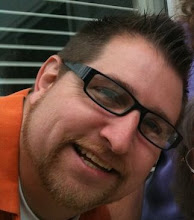I’m slowly reading through The Children of Divorce: The Loss of Family as the Loss of Being by Andrew Root. The following is what I hope to be one of many posts interacting with the book and my own experiences.
Marriage didn’t happen for me until eight years after my parents’ divorce. I am quite thankful for that because it allowed me to take a look at the relationship patterns in my own life that I saw as contributing to the breakdown of my mom and dad’s relationship. Then I was able to submit those things in my life to Christ for healing and transformation. The most formative thing for me out of our family’s tragedy was my desire to know what I wanted out of marriage.
Before we were together, my wife used to tell her friends and family that she “wasn’t going to get married unless her husband would help her serve Christ better.” I had a similar approach in that I wasn’t interested in marrying someone unless we shared a trust in Christ and, even more importantly, we shared the same mission in ministry.
In the first chapter of The Children of Divorce, author Andrew Root lays out the history of marriage making the point that our modern way of marrying for love is a recent cultural phenomenon. Root makes the point that before the 16th century marriage was about passing on property, power, and tradition. Between the 16th and 18th centuries marriage was about maintaining tradition in a world of needed labor. Then in the 19th and 20th centuries people began marrying for intimacy. As marriage became more and more about the fulfillment of self, it became increasingly permissible for individuals to leave marriages that were not fulfilling their individual needs. Root suggests that marrying for love may be the reason why today’s marriages struggle to last a lifetime.
Love in and of itself can be fleeting. Even for the most devoted couples. Root’s point in the chapter is to point out that when couples choose to separate for reasons relating to self-fulfillment that children suffer because they have no choice in the matter. The child’s understanding of self is completely tied to who they are in the family.
It is important then, that families that intend to last have a purpose grander than acquiring “love” for self-fulfillment. My wife and I are united by our love for one another, but beyond that we are united by our desire to raise our kids to become fully functioning adults, and beyond that our calling to be ministers of God’s word in the Church. We are committed to staying together because our community would suffer if we did not.
If you are single, wait for a spouse that can help you live beyond yourself. If you are married, work together to find a purpose for your marriage beyond taking care of each other’s needs. Then, perhaps, fewer kids will have to suffer the tragedy of divorce on their lives.



